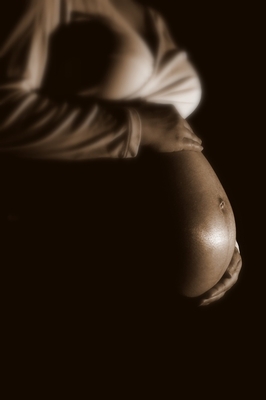
A groundbreaking survey of African American mothers on their pregnancy and birth experiences reveals that black moms have little support before, during and after birth—a void that may explain why African American babies are disproportionately underweight and suffer high infant mortality.
The first-of-its-kind survey of 245 Black women in Oregon was conducted by the International Center for Traditional Childbearing (ICTC), with help from Portland State University, as part of the group’s push to get the Oregon Health Authority to investigate how doulas can improve birth outcomes for women of color.
ICTC founder and director Shafia Monroe told TheSkanner.com that while there is a need for more research, the survey verifies what she sees and hears from Black women in Oregon. “Many are in the public health care system, they don’t have access to or support to take birthing classes or maintain breastfeeding, they often give birth alone with no support besides hospital staff, and some expressed fear during their time in the hospital based on their treatment,” she added.
The study found that:
- Nearly two-thirds of the women survey did not attend birth education classes prior to delivery
- Nearly one-third of the women were concerned about their treatment during the birth of their baby
- The majority of women surveyed have government-paid health insurance coverage
- More than half of the women surveyed were single
- Only 25 percent of African American mothers were still breastfeeding their babies at six months, compared to more than 60 percent of Oregon moms overall. The national average is 40 percent.
The ICTC, an organization that promotes midwifery, recruitment and training for black women interested in being doulas, says its seen a marked improvement in birth outcomes for African American babies when Black women have access to affordable, community-based, direct healthcare services like doulas. “A greater level of cultural competency is needed in order to ensure that basic trust and communication issues are not barriers to appropriate healthcare for Black women and infants,” Monroe added.
No truer words could have been said. Last week, I wrote about how songstress Erykah Badu, who is studying for her midwifery license, recently partnered with the ICTC to help spread the word about the need for the healthcare community to think more deeply about the business of birth as it relates to African American mothers and especially its effects on black infant mortality rates. Thank God a group of passionate Black women are leading the discussion. *taps mic* Is the healthcare community listening?

RELATED POSTS
- Tackling Black Infant Mortality Rates—Without Stereotyping Black Mothers
- Paying Homage To The OB-GYN Who Escorted Me Into Motherhood
- Nipples and Ninny: An African American Mom’s Breastfeeding Journey
- Erykah “Badoula” And the Business of Birthing: Can Midwifery Help Stem Black Infant Mortality Rates?
Denene Millner
Mom. NY Times bestselling author. Pop culture ninja. Unapologetic lover of shoes, bacon and babies. Nice with the verbs. Founder of the top black parenting website, MyBrownBaby.
- Web |
- More Posts


Wow, this is really eye opening. After watching Ricki Lake’s “The Business of Being Born” a few years ago, it really got me thinking about how I wanted my birth experience to be. We hired a doula when my daughter was born last year and her assistance was invaluable. I’ve spread the word about the benefits of having a doula ever since. I’ll be sure to share this article!
I gave birth almost a decade ago. It was a home birth in Oregon. It was a peaceful and beautiful experience. Sadly, for the second birth I had to go to a hospital. SInce I developed antibodies even after getting Rhogam, or rather Rho scam. Black women do tend to give birth to smaller babies. This is our “normal” though. None of my children weighed more than 6 pounds at birth.
I love the work of Mama Shafia!
Thanks for sharing this information. Precisely one of the reasons I’m in training to become a doula right now. If any women are in the Boston or NYC areas and in need of a doula, you can click my name and contact me through my website. Here’s to healthy births for all of my sistas.
I love this article.
Personally I had a natural birth for both my children , we had two midwives and it was the best birthing experience , just having the physical and emotional support I needed made a world of difference.
But I should say that it is time for women (all women) to become more responsible about their bodies and who the have children with. Black woman have the highest rates of babies born outside of marriage and single parenthood then any other race, this is not relative to what we see on television, rather what we choose to believe about ourselves our worth and our future.
Cheers!